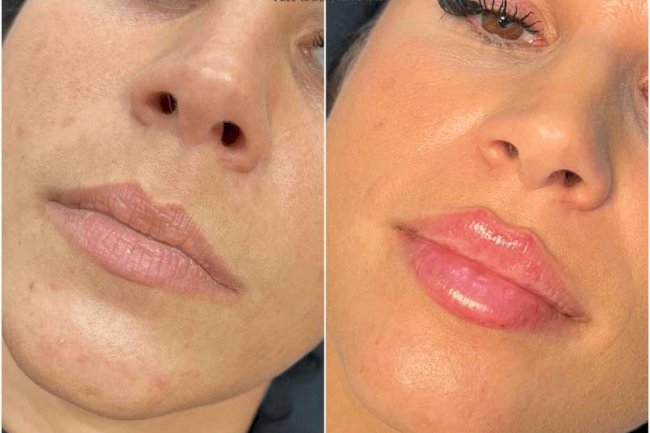Recurring Yeast Infections and the Gut: Is There a Connection?

Have you ever wondered why some women experience vaginal yeast infections over and over again, despite taking medications, practicing good hygiene, and avoiding known triggers? According to the Centers for Disease Control and Prevention (CDC), about 75% of women will have at least one vaginal yeast infection in their lifetime, and up to 8% suffer from recurrent infections, defined as four or more episodes in a single year.
While local factors such as antibiotics, hormonal changes, and hygiene habits are commonly blamed, emerging research is uncovering a deeper, systemic culprit: the gut microbiome. Could the gut, our body’s central hub for immunity, digestion, and microbial balance, influence persistent vaginal infections?
In this article, we will explore the link between gut health and vaginal yeast infections, examine the science behind recurrence, and suggest proactive steps for prevention.
Understanding Vaginal Yeast Infections: More Than Just Itching
Vaginal yeast infections are caused by an overgrowth of Candida, a type of yeast (fungus) that naturally resides in the vaginal microbiome. While Candida albicans is the most common strain, others like Candida glabrata may be involved in difficult-to-treat or recurrent cases.
Symptoms typically include:
- Itching and irritation
- Thick, white vaginal discharge
- Burning during urination or intercourse
- Redness and swelling of the vulva
A vaginal yeast infection is not considered a sexually transmitted infection (STI), but sexual activity, hormonal birth control, tight clothing, and antibiotic use can disrupt the normal pH and microbial balance, leading to an overgrowth of Candida.
Recurrent infections often suggest a deeper issue, possibly originating beyond the vaginal environment.
The Gut-Vagina Axis: How Are They Connected?
The human body is an interconnected system, and one of the most fascinating relationships is between the gut microbiome and the vaginal ecosystem. This connection, often referred to as the gut-vagina axis, suggests that microbial imbalances in the gut may affect the stability of the vaginal flora.
Here’s how it works:
- Candida resides in the gastrointestinal tract, where it usually coexists peacefully with beneficial bacteria like Lactobacillus.
- When the gut microbiome becomes imbalanced (due to antibiotics, poor diet, stress, etc.), Candida can overgrow and potentially spread to other mucosal sites, including the vagina.
- The intestinal wall, if compromised (as in "leaky gut"), may allow Candida to enter the bloodstream or lymphatic system, potentially seeding the vaginal canal.
A study published emphasized that gut dysbiosis can precede and even trigger vaginal yeast infections, especially when immune function is compromised.
Why Do Some Women Get Recurrent Vaginal Yeast Infections?
While most women can clear an occasional yeast infection with antifungal treatment, recurrence can signal underlying systemic factors. These may include:
- Gut dysbiosis: An imbalance in gut bacteria may promote fungal overgrowth.
- Weakened immune system: Due to diabetes, HIV, or certain medications.
- Hormonal fluctuations: From birth control, pregnancy, or hormone therapy.
- Antibiotic use: Kills both harmful and beneficial bacteria, leading to fungal dominance.
- High-sugar diet: Feeds Candida, encouraging its overgrowth.
Researchers are now paying attention to how Candida in the gut acts as a reservoir for vaginal yeast infections, especially in recurrent cases. Without addressing the source of overgrowth, treating the vaginal symptoms alone may offer only temporary relief.
How Gut Health Influences Vaginal Immunity
The gut is not only the body’s largest microbial reservoir; it’s also a critical immune organ. Over 70% of immune cells are located in the gut-associated lymphoid tissue (GALT), which plays a vital role in regulating microbial balance throughout the body.
If the gut is inflamed or imbalanced, it can lead to weakened immune defenses in peripheral mucosal sites like the vaginal canal. In fact, studies suggest that Lactobacillus species, which help maintain the acidic pH of the vagina and inhibit Candida growth, can be compromised by a dysregulated gut microbiome.
Moreover, Candida biofilms, structured fungal communities that are resistant to treatment, may form in the gut and later colonize the vaginal lining, creating a cycle of recurrence that standard antifungal therapy often fails to break.
Strategies for Prevention: Heal the Gut, Support the Vagina
If you are battling recurrent vaginal yeast infections, it's time to think beyond antifungal creams. A holistic approach that includes gut health may help prevent future flare-ups.
Here are evidence-based strategies:
- Probiotics: Supplementing with strains like Lactobacillus rhamnosus and Lactobacillus reuteri can help repopulate both the gut and vaginal microbiome.
- Low-sugar diet: Reducing simple carbs and added sugars deprives Candida of its preferred fuel.
- Prebiotics: Foods like garlic, onions, and asparagus feed beneficial bacteria.
- Digestive enzymes: Aid nutrient absorption and reduce gut inflammation.
- Antifungal herbs: Such as oregano oil, caprylic acid, and berberine (consult your doctor).
- Stress management: Chronic stress weakens immunity and disrupts gut flora.
Women prone to vaginal yeast infections may benefit from a comprehensive evaluation of gut health, especially if standard treatments have failed repeatedly.
When to Seek Medical Help: Not All Discharge Is a Yeast Infection
It’s important to note that not all vaginal discharge or irritation indicates a vaginal yeast infection. Conditions like bacterial vaginosis, trichomoniasis, STIs, or even skin disorders can mimic similar symptoms.
If you experience:
- Frequent recurrences
- Persistent symptoms despite treatment
- Unusual discharge (gray, green, or foul-smelling)
- Pain during urination or intercourse
You should consult a gynecologist for a proper diagnosis, including vaginal swabs and cultures. They may also recommend stool testing for Candida overgrowth in the gut, particularly in chronic or unexplained cases.
Tailoring treatment based on the root cause, whether local or systemic, is essential for long-term relief from vaginal yeast infections.
Conclusion: The Gut May Hold the Answer to Recurring Infections
The gut and the vagina are more closely linked than most people realize. If you are stuck in a frustrating cycle of vaginal yeast infections, it's time to consider whether your gut microbiome could be playing a role. While antifungal medications may offer short-term relief, restoring balance in the gut ecosystem may be key to breaking the recurrence cycle.
By supporting both gut and vaginal health, women can move beyond reactive treatment and toward a more proactive, long-term strategy for wellness.
What's Your Reaction?














